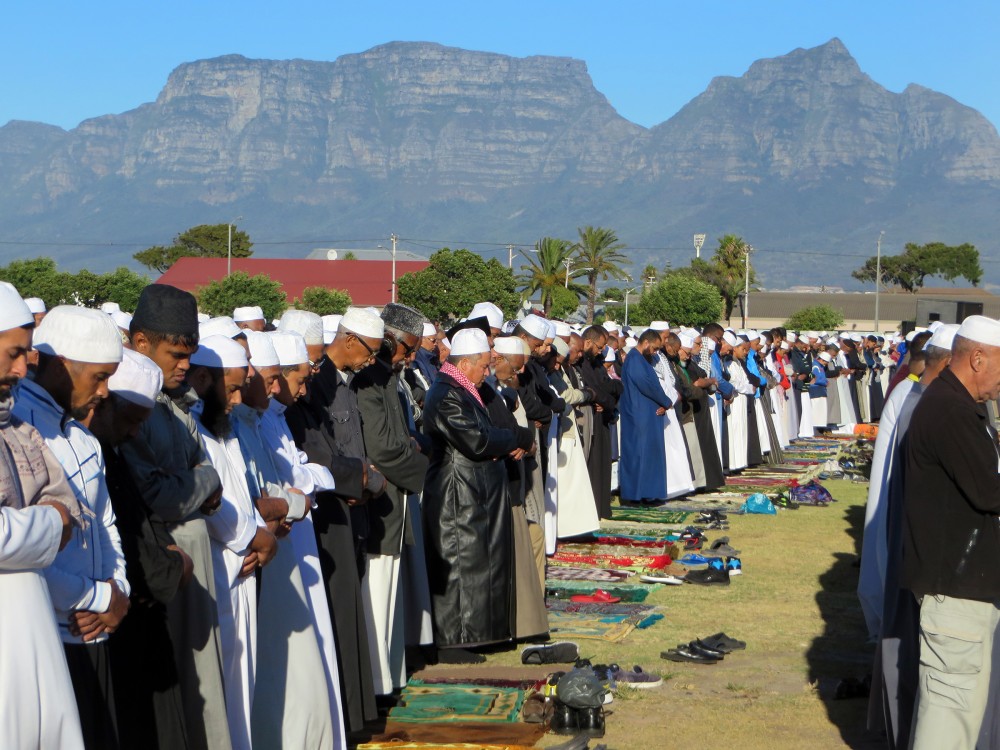As Cape Town's water crisis nears 'Day Zero,' faith groups spring into action
Climate change's toll is increasing in South Africa.

A trickling sound echoed through the chapel as Garth Q. Counsell, the Anglican bishop of Table Bay, South Africa, slowly poured one pitcher of water into another.
The sound of running water, once considered soothing, now triggers anxiety in drought-stricken Cape Town, where residents are hoarding bottled water and showering over buckets in anticipation of “Day Zero.”
Currently estimated to occur mid-May, Day Zero would mark the unprecedented moment when engineers shut down most of the city’s water service. Nearly 4 million residents would be left to fetch daily water rations of just 25 liters (6.6 gallons) from fewer than 200 central collection points until rains resume or alternative sources become available.





